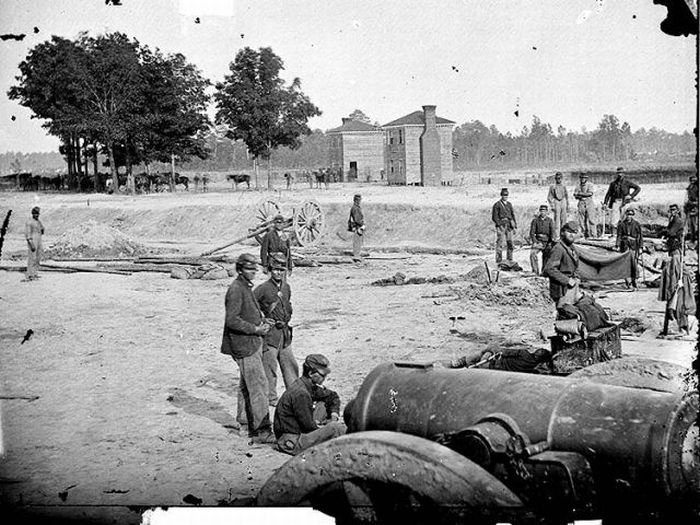|
|
History: American Civil War (1861-1865)
|
States' rights
Everyone agreed that states had certain rights—but did those rights carry over when a citizen left that state? The Southern position was that citizens of every state had the right to take their property anywhere in the U.S. and not have it taken away—specifically they could bring their slaves anywhere and they would remain slaves. Northerners rejected this "right" because it would violate the right of a free state to outlaw slavery within its borders. Republicans committed to ending the expansion of slavery were among those opposed to any such right to bring slaves and slavery into the free states and territories. The Dred Scott Supreme Court decision of 1857 bolstered the Southern case within territories, and angered the North.
Secondly the South argued that each state had the right to secede—leave the Union—at any time, that the Constitution was a "compact" or agreement among the states. Northerners (including President Buchanan) rejected that notion as opposed to the will of the Founding Fathers who said they were setting up a "perpetual union". Historian James McPherson writes concerning states' rights and other non-slavery explanations:
|
|









